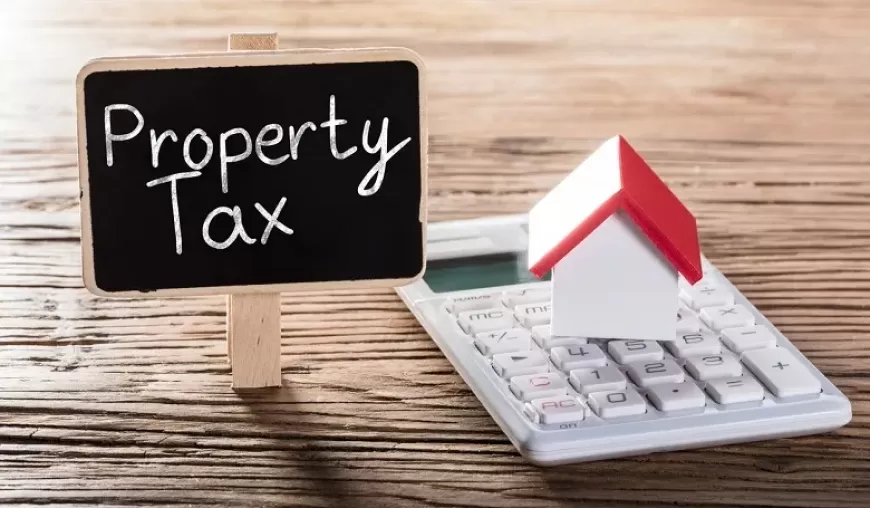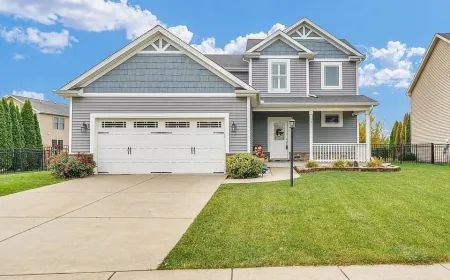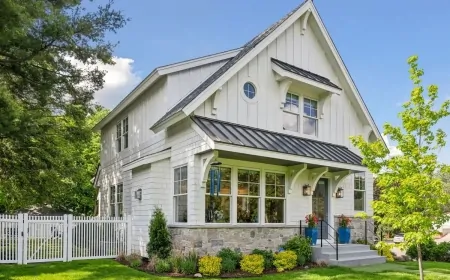States Struggle to Control Property Taxes as Home Prices Skyrocket
Home prices are up over 50%, raising property taxes. States like Colorado and Georgia are trying to limit these taxes to help homeowners manage rising costs.

Tom and Beverly McAdam, retirees in suburban Denver, have seen their two-bedroom home's value soar by 45% since purchasing it six years ago. While this increase adds value to their property, it also significantly hikes their property taxes, reducing their disposable income.
“To handle the higher property taxes, we’ve had to take more money out of our investments when those big bills come due,” Beverly McAdam said. She supports a Colorado proposal to limit property tax increases, one of many measures states are considering to address rising property tax complaints.
Nationwide Surge in Home Prices
S&P Dow Jones Indices reports that single-family home prices have jumped approximately 54% nationwide over the past five years. This increase leads to higher tax bills for homeowners if local governments do not lower tax rates to offset the rising property values. The situation is worsened by higher vacancy rates in commercial properties due to more people working from home after the pandemic, putting additional tax pressure on residential properties.
“With property values increasing so much in recent years,” said Jared Walczak from the nonprofit Tax Foundation, “homeowners are seeking relief, and state policymakers are exploring ways to provide it.”
States Respond with New Measures
Several states, including Colorado, Alabama, and Wyoming, have passed laws to limit the growth of tax-assessed values for homeowners. Kansas will hold a special legislative session starting June 18 to discuss property tax relief, and Nebraska might do the same.
In Georgia, voters will decide in November whether to approve a new law that caps increases in home values for tax purposes to the rate of inflation unless local governments opt out.
Lanell Griffith from Topeka, Kansas, expressed her frustration as her property taxes rose from just under $2,700 five years ago to over $3,700 last year. “The government shouldn’t be able to just increase what you owe without any limits,” she said.
Legislative Debates in Kansas and Vermont
Kansas lawmakers passed three bills this year to reduce property taxes for public schools, but all were vetoed by Democratic Governor Laura Kelly due to concerns about associated income tax cuts. The upcoming special session will be a fourth attempt to reach an agreement.
In Vermont, Republican Governor Phil Scott plans to veto a bill that proposes an average property tax increase of nearly 14% to fund public schools, stating that people “simply cannot afford such a significant increase.”
Local Governments and Property Taxes
In many states, local governments like counties, cities, and school boards set property tax rates. These rates combine to form the total property tax bill for homeowners.
State legislatures can intervene to limit how much property values can increase, offer tax exemptions, or provide income tax credits to offset property taxes for certain groups, such as people aged 65 and older. However, these measures can have side effects. For example, capping property value increases might benefit wealthier homeowners more, and exemptions for primary residences can shift the tax burden to rental properties and businesses.
“If you limit taxes too much, you might restrict your local government’s ability to raise the money it needs,” said Richard Auxier from the nonprofit Tax Policy Center.
Wyoming’s Property Tax Relief Efforts
In Wyoming, Governor Mark Gordon vetoed a bill that would have exempted 25% of a home's value from property taxes, citing concerns about the financial stability of the state and counties. However, he did sign several other property tax relief bills.
Georgia’s Complex Property Tax System
Georgia’s Muscogee County illustrates the complexities of property tax relief. A 1982 local ordinance froze property values for primary residences, resulting in very different tax bills for similar homes based on when they were bought. For instance, a home with a value frozen in the 1980s might owe less than $8 in taxes, while a similar home purchased five years ago might owe over $3,000.
Ongoing Property Tax Debate in Colorado
Colorado has been grappling with property tax issues for years due to rapid population growth and rising home values. A 1982 constitutional amendment limited residential properties to 45% of the total property tax base while fixing commercial property assessment rates. As home values rose, residential tax assessments were cut, reducing revenue for essential services like fire departments.
This amendment was repealed in 2020, leading to a sharp rise in assessed home values. The General Assembly recently passed a law to cut over $1 billion annually from future property tax revenue by reducing tax rates and capping growth.
However, some residents remain unhappy. The conservative group Advance Colorado is pushing for a ballot initiative to cap property tax revenue growth at 4% per year and is gathering signatures for another initiative to lower property taxes further.
“People think this is too much growth; the government doesn’t need this much money,” said Michael Fields, president of Advance Colorado. "People are genuinely scared of losing their houses.”
Also Read: Denmark's Approach Could Fix America's Housing Market Issues































































